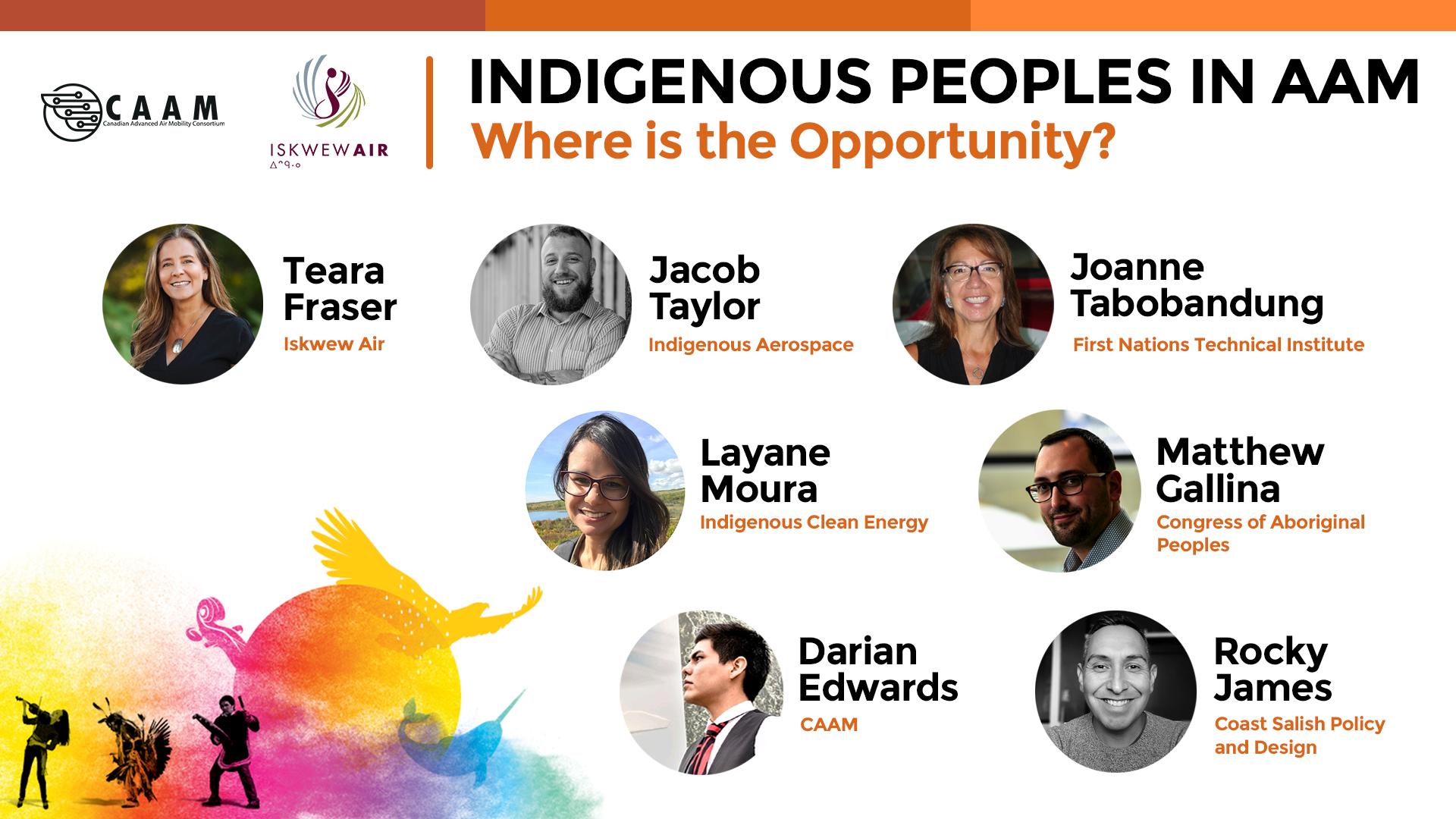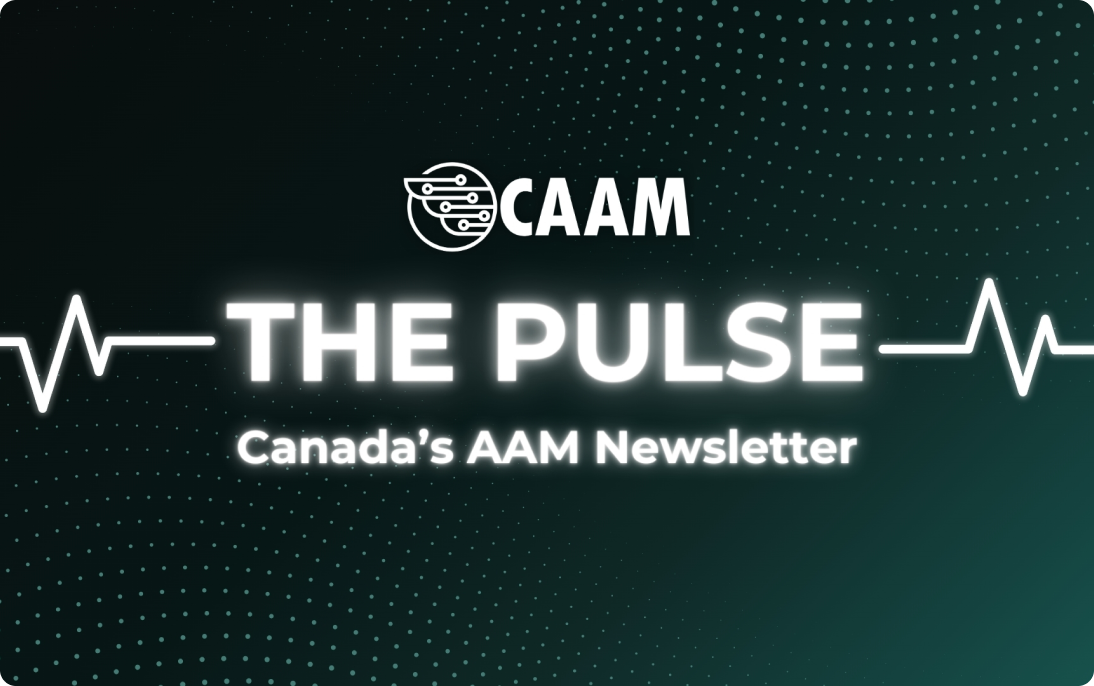Get to know some of the speakers of the upcoming Uplift Series “Indigenous Peoples in AAM: Where is the opportunity?”

Darian Edwards (CAAM)
Indigenous from the St’at’imc nation, near what is now Lillooet B.C. 11 years experience in the Aviation industry, five years in Public Service and five years in Emergency Management.
Avid aviation enthusiast and sits on the Aboriginals Living in Vancouver Enhancement Society Youth Council.
When questioned, “What do you want the attendees to learn from this event?” Edwards answered:
I like people to be able to know AAM isn’t only drones. I want to make people see AAM as a tool, as a resource that can help, benefit, and impact communities and everyday life.
When asked, “What benefits do you see in being side to side with CAAM on this type of event?” Edwards replied:
The event shows the commitment to reconciliation, not only on CAAM’s side but in the air mobility field as a whole.
Lastly, when queried about “Is there someone or an organization or program you might recommend to others who want to continue the conversation on these types of topics?” Edwards stated:
People should subscribe to CAAM’s lists and newsletter. CAAM’s network has many companies and individuals that can help AAM and reconciliation move forward.
Rocky James (SSPDP)
Rocky James is the sole proprietor of Sole Proprietor at Salish Social Policy Design and Practice, which aims to transform how individuals, teams, and organizations design and practice their social police.
SSPDP helps build the skills to integrate Indigenous worldviews into social policy design and practice.
When asked, “What do you want the attendees to learn from this event?” James answered:
Reconciliation work within Indigenous communities needs to include working on the internalized colonization of gender and sexual identity and the consequences of homophobia, biphobia, and transphobia.
And when questioned, “What benefits do you see in being side to side with CAAM on this type of event?” James stated:
This is an opportunity to expand the participation of 2SLGBTQQIA+ by including a trauma and violence-informed approach for Two-Spirit people. Two-Spirit people have been largely excluded from national, provincial, and local narratives on reconciliation. Success in the aerospace sector will include reconciliation with Two-Spirit people on the following issues,
the demoralization of our language and culture,
the destabilization of our traditional forms of governance,
the health and social crisis we face on an annual basis,
the normalization of Two-Spirit erasure and invisibility.
Yes, all Indigenous people struggle with these issues, but sectoral change can happen at the intersection of education, reconciliation, and capacity development with 2SLGBTQQIA+ people.
Matthew Gallina (ISET)
Matthew Gallina is the National Training Coordinator for the Indigenous Skills and Employment Training (ISET) program at the Congress of Aboriginal Peoples.
He works diligently to assist urban off-reserve Indigenous people applying to CAP ASETS with successful skills training interventions and employment supports.
Gallina is also working to provide specific supports for ISET clients living with disabilities.
When asked, “What do you want the attendees to learn from this event?” Gallina answered:
I want the attendees to examine their own consciousness biases and beliefs; embrace tools/strategies to deepen their connections with local and national indigenous communities/ organizations.
When questioned, “What benefits do you see in being side to side with CAAM on this type of event?”He stated:
CAAM works to create sustainable and true partnerships with Indigenous Canadians. Their core values align with the economic and employment opportunities CAP advocates for on behalf of its Non-Status/Off-Reserve Status, Eastern Metis and Southern Inuit members.
And Gallina answered the following when asked, “Is there someone or an organization or program you might recommend to others who want to continue the conversation on these types of topics?”
For your local ISET holder (Indigenous Skills and Employment Training) that provides funded and non-funded services including direct tuition payment, target wage subsidies, employment counselling, career planning etc. visit https://www.canada.ca/en/employment-social-development/programs/indigenous-skills-employment-training.html
Please feel free to email me at [email protected] if you would like to discuss various partnership options/engagement opportunities for off-reserve Indigenous candidates.
Want to stay informed on this topic and be notified of future events? Subscribe and join our Uplift Series events here.
You can also sign up for this event by clicking here!
By Giovani Izidorio Cesconetto



